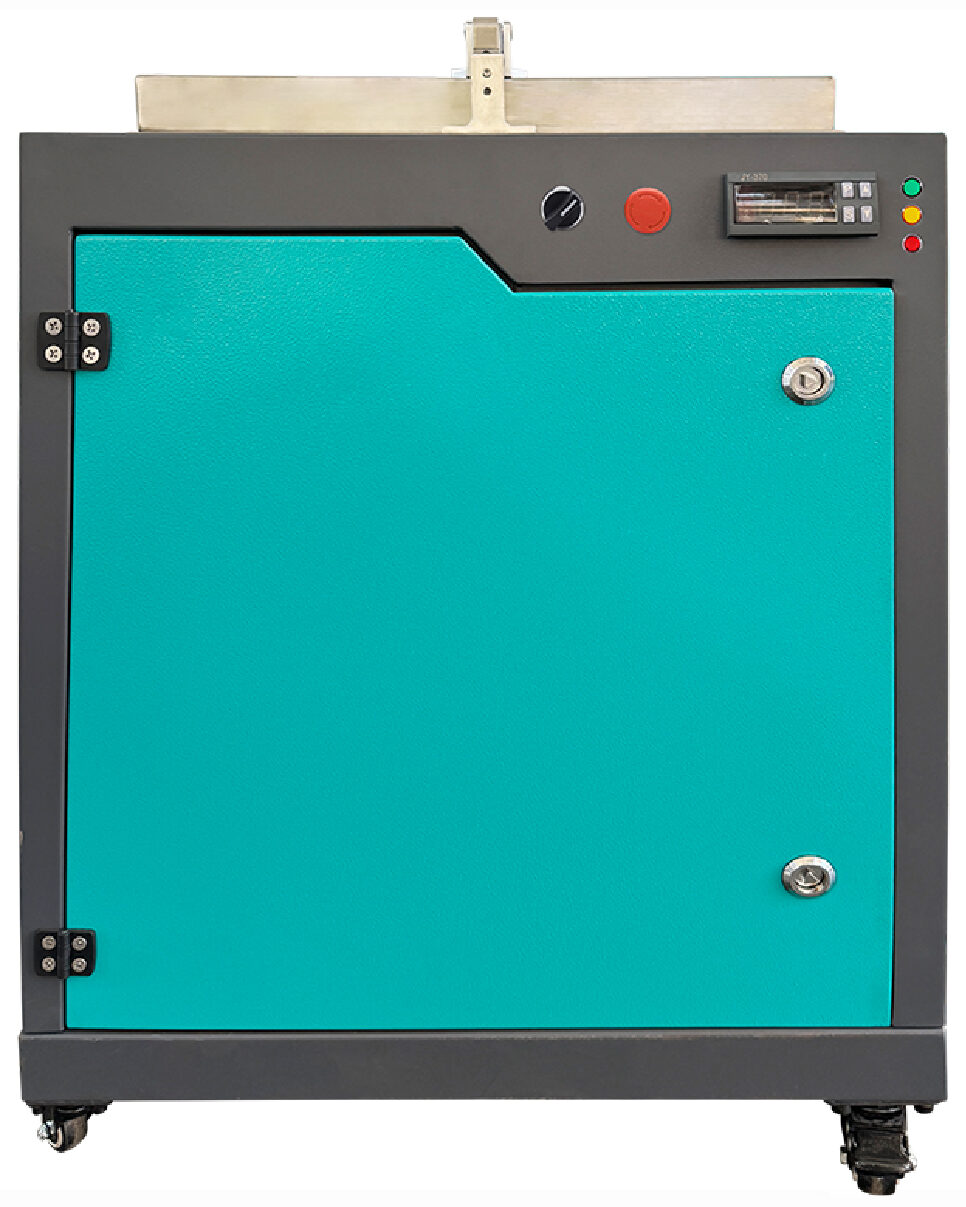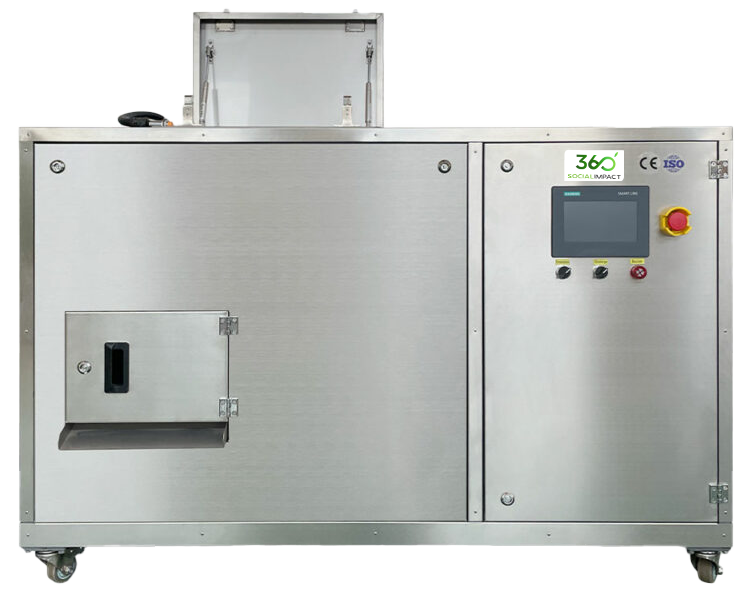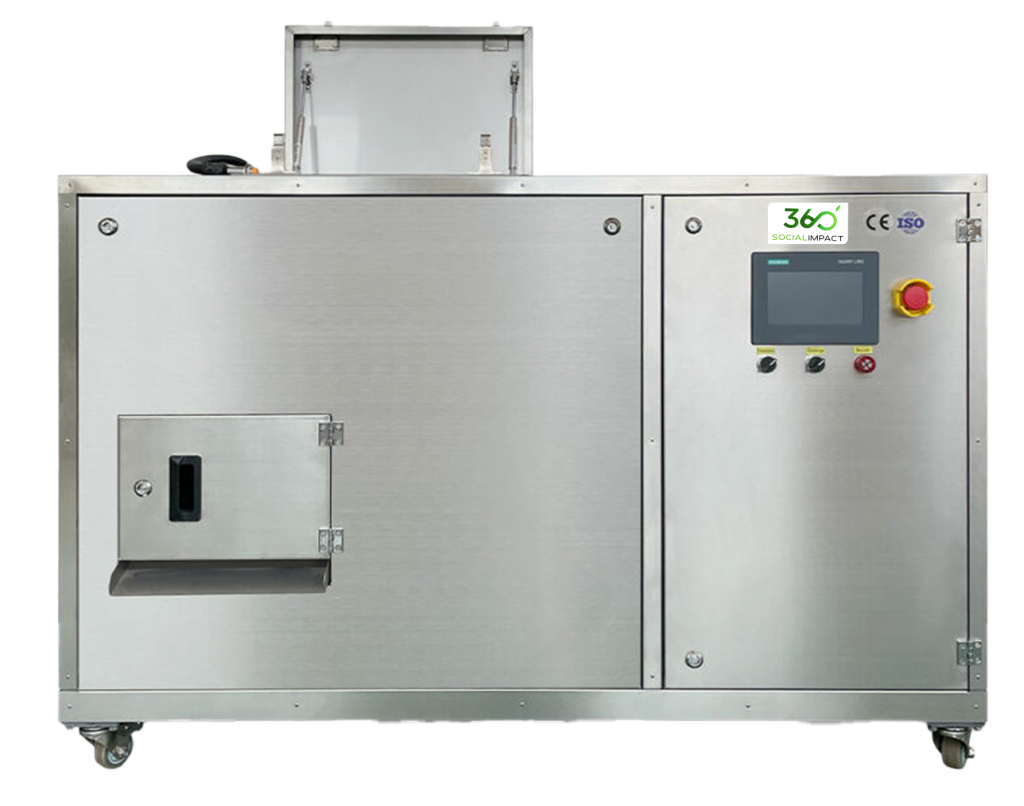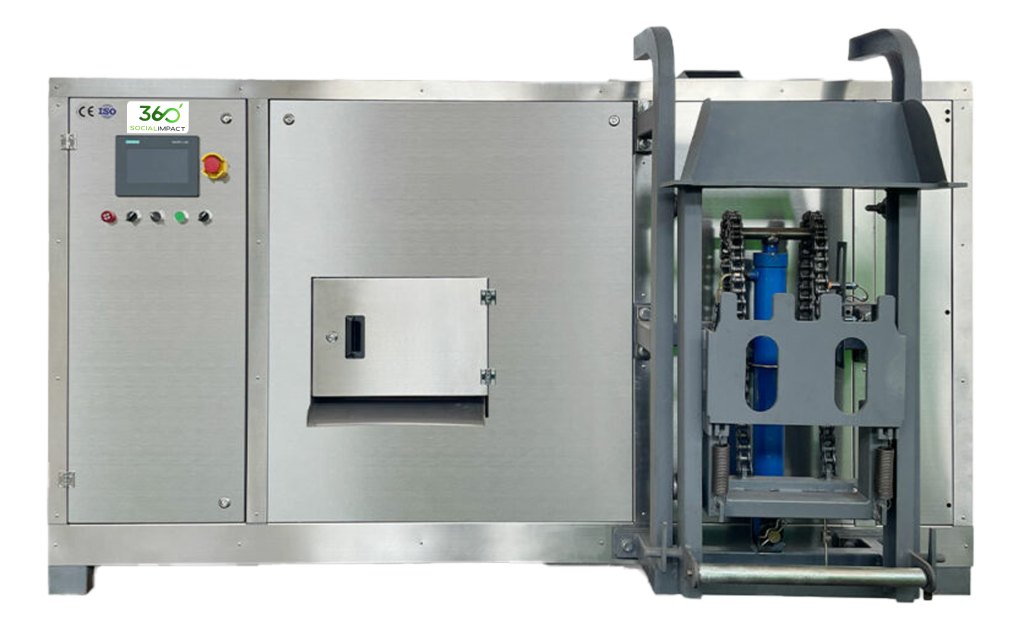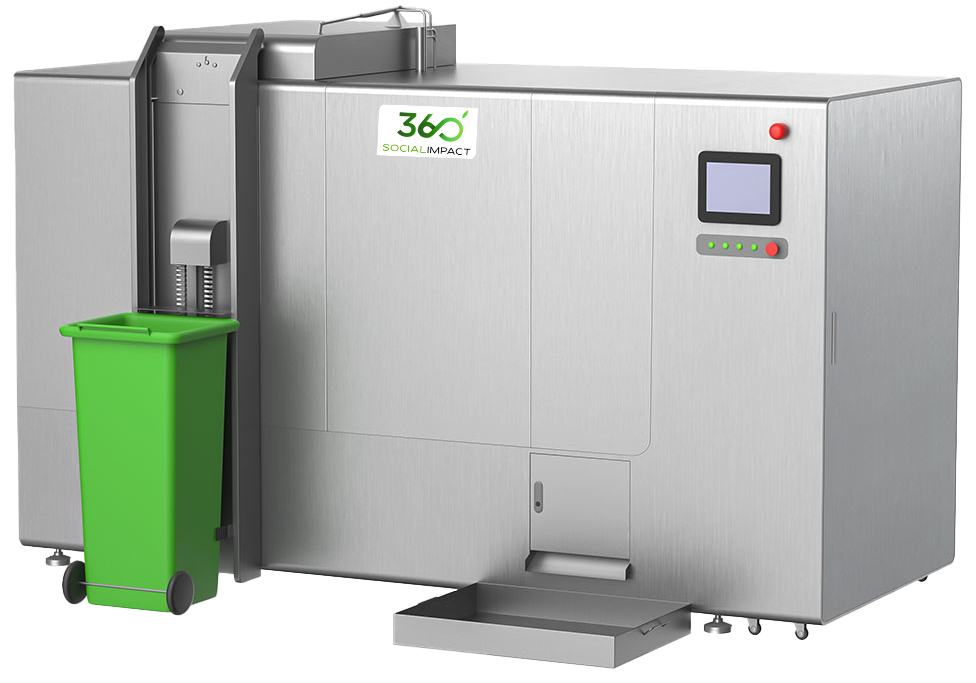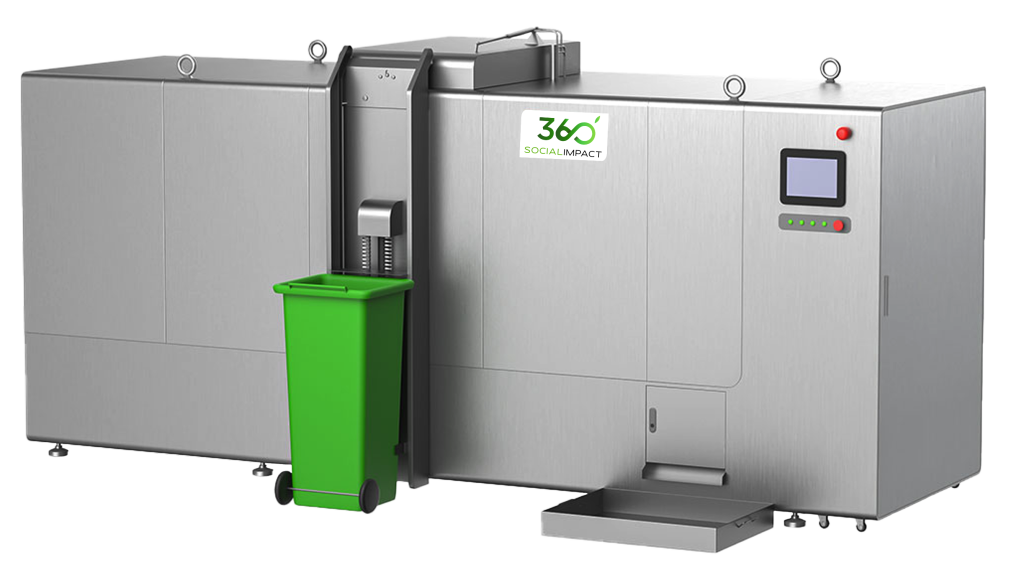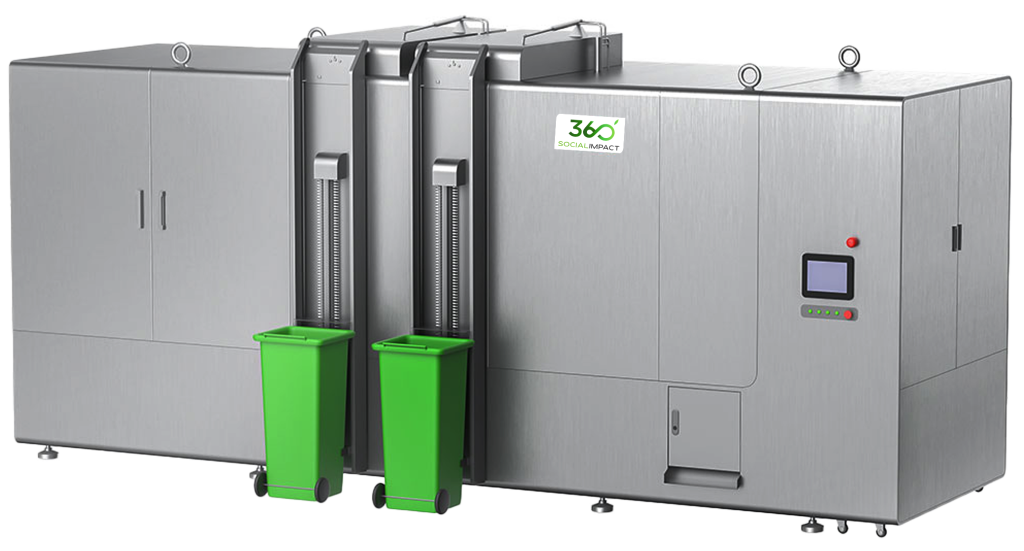Our Technology
Automated Composters
Organic Waste Composting Process
Benefits And The Impact Of Food Waste Recycling
Environmental & Circular Economy Benefits
- Promote recycling, repurposing, and reuse of food waste as fertilizer, supporting a circular economy.
- Significantly reduce greenhouse gas emissions by diverting food waste from landfills.
- Reduction in air pollution by curbing the release of methane and carbon dioxide.
- Mitigate global warming.
- Enhance biodiversity by returning valuable nutrients to the soil and fostering healthier ecosystems.
- Production of organic fertilizer from recycling food waste
Benefits And The Impact Of Food Waste Recycling On Un 2030 (SDG’s)
- Reduce environmental impact of food waste management in cities, diverting food waste from landfill sites that causes air pollution of green house gas emissions(GHG)
- Sustainable Development Goal 12, target 12.3 – captures a commitment to halve per capita global food waste being discarded and to reduce food loss across supply chains by 2030
- Food waste that is discarded to landfill sites, contributes to greenhouse gases, global warming and air pollution
360 Social Impact will contribute to:
- Job Creation in the Green Economy: Create employment opportunities, especially for youth and women.
- Training & Development: Provide education on sustainable waste management within a circular economy.
- Education & Awareness Campaigns: Raise awareness on sustainability management and environmental stewardship.
- Collaboration with NGOs: Partner with organizations focused on environmental sustainability, food security, and community development.
- Support CSI, Agricultural and Social Enterprise Programs: Contribute to sustainable agriculture and community projects.
Benefits of Adopting 360 Social Impact’s Food Waste Recycling Technology
Cost Efficiency
Reduce on-site food waste disposal, leading to lower facility management expenses and municipal waste costs, while supporting local landfill management savings.
ESG and Sustainability Compliance
Mitigate ESG risks by aligning with global sustainability standards, including the UN 2030 SDG targets, enhancing corporate responsibility.
Environmental Impact
Significantly lower your carbon footprint and contribute to a circular economy by transforming food waste into reusable organic fertilizer.
Increased Investor Appeal
Improve your company’s Green Economy rating, boosting attractiveness to sustainability-focused investors and stakeholders
Value-Added Services
360 Social Impact brings additional value through:
Optimization and continuous improvement of the recycling process.
Tested, ISO Accredited, and EU Certified technology.
Unique intellectual microbe properties that fast-track recycling.
Compact technology requiring minimum floor space
Monitoring and measuring all food waste volumes from input to output
Access data and remote monitoring.



